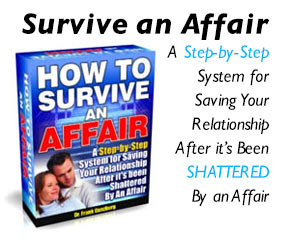The Power of Apology
Be More Generous with "I'm Sorry"
Saying “I’m Sorry” does not equal saying “I’m Wrong”.
Learn to be more generous with the words “I’m Sorry” Avoid the “I didn’t do anything wrong” defense by thinking of an apology in new terms:
If your behavior resulted in your spouse feeling hurt, disappointed or worried, wouldn’t you like to ease those feelings? Saying “I’m sorry that I caused your distress” is not admitting to being a bad person, but it can go a long way toward smoothing hurt feelings and preventing arguments or resentment.
Practice Apologizing
If you know you did something wrong, admit it, apologize and move on. Some specifics:
TRY: “I’m sorry for what I did. It was wrong, and I regret that my mistake hurt you.”
AVOID: “Do you want me to apologize? Fine, I apologize!”
TRY: “I’m sorry that what I said hurt your feelings. I didn’t mean to, and I don’t really understand your hurt. But I do understand that you ARE hurt by something I did (or said), and for that I am very sorry.”
AVOID: “I can’t believe you’re so upset about something so ridiculous. You shouldn’t be so sensitive.”
There really is no such thing as a wasted apology or one somebody didn’t deserve. You can apologize without losing face even though you are accepting blame for hurting your spouse’s feelings.
An apology is a simple gift of love. Give it often.
I wish you much success in using the power of apology to improve your marriage and communication.
Related
- DC Activities
I offer marriage retreats from my office in Baltimore, Maryland. Once you are traveling to Baltimore... - About
About Frank Gunzburg, Ph.D. Dr. Gunzburg: A Psychologist Doing Marriage Counseling As a practicing p... - How To Stop Divorce
A common question for couples on the verge of divorce is:Can I stop a divorce after my spouse asks f...
Free Marriage Tips
- Stop Divorce
Stopping divorce is possible. Many couples have successfully recovered from the brink of divorce and... - Arguing
Arguing Arguing in marriage can be harmful because arguing often leads to anger. Of course, it is of... - Infidelity
Marital Infidelity Infidelity in marriage is destructive and can rend holes in your relationship tha...



